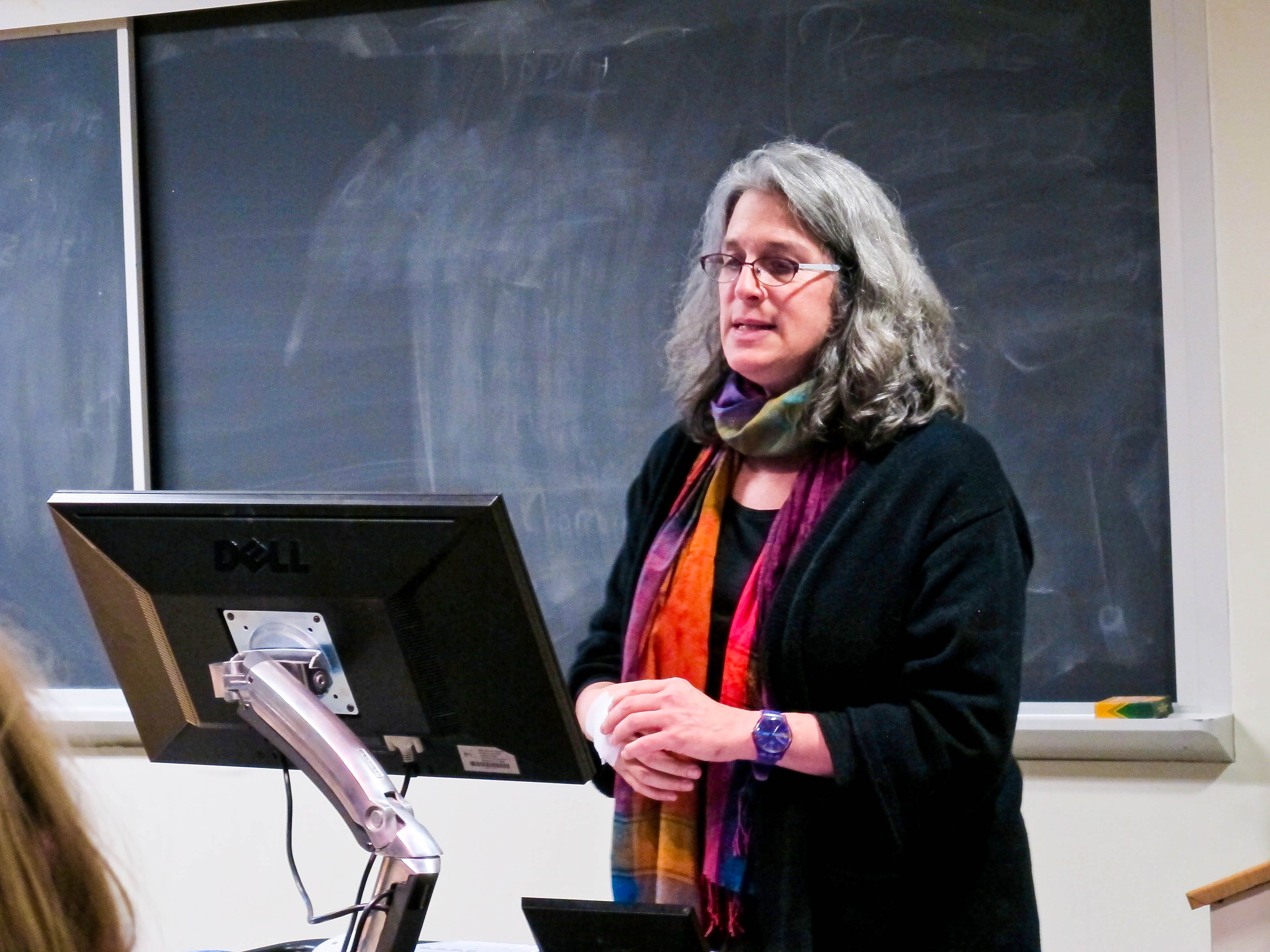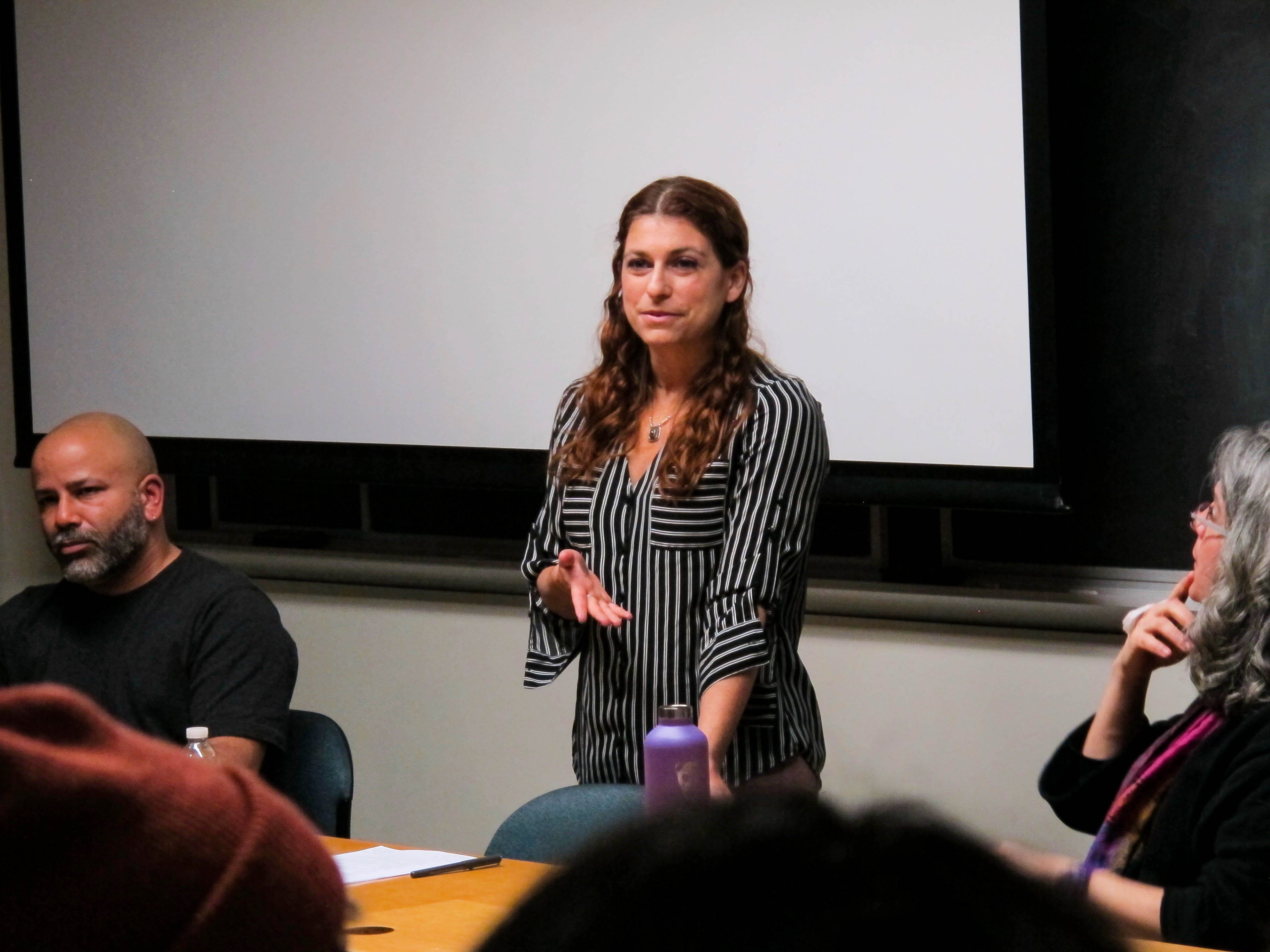On Feb. 9, the Wesleyan Climate Ambassadors hosted the Animal Agriculture and Sustainability Faculty Panel. The panelists included Professor of Philosophy, Environmental Studies, and Feminist, Gender, and Sexuality Studies Lori Gruen; Professor of Science In Society Program and Sociology Anthony Hatch; and Professor of Philosophy Sharisse Kanet.
The discussion focused on food and its production with a concentration on the impact of modern agriculture and factory farming on the environment, as well as their implications in terms of public health, social inequality, and climate change.
Rachael Metz ’16, a member of the Climate Ambassadors and one of the organizers of the event, expressed her feelings on the significance of this topic in an email to The Argus.
“This panel is covering issues that are incredibly important for everyone to discuss, as all topics revolve around our food system,” Metz wrote. “Everyone needs to eat and make food choices every day, and those food choices are votes of support to certain aspects of the system. Research shows that the animal agriculture system is extremely harmful to the environment, that animal products are the number one cause of some of America’s biggest killers (i.e. heart disease, diabetes, various types of cancer), and it is extremely cruel to animals. By shifting our diets, we can make a tremendous impact by reducing our carbon footprint and improving our health.”
Ally Ruchman ’16, another member of the Climate Ambassadors, also talked about the reasons why the club decided to hold the panel and how it will benefit the University.
“Climate Ambassadors is sponsoring this panel because animal agriculture is the leading cause of carbon emissions,” Ruchman said. “I think the event [will be] really beneficial for the Wesleyan community because students can not only learn about some facts related to climate change, food, and sustainability, but will also get the opportunity to hear three different professors’ perspectives on the topic.”
The event opened with introductions of each of the faculty panelists, followed by questions taken from audience members.
Gruen began the panel by speaking on issues of social justice within the realms of food and of climate change.
“Basically, there is a really important way in which thinking about justice in the context of food and thinking about justice in the context of climate really raises challenging and contradictory kinds of issues,” Gruen said. “I want to highlight… questions about food justice; who has access to healthy, sustainable, tasty foodstuffs… We don’t think about climate change issues in terms of justice often, but there are going to be people who are already, unfortunately, under-resourced who are going to be suffering first and most, as well. It’s so interesting that those people who might be the most negatively impacted by issues of climate are also those people who are already impacted by various kinds of food injustices.”
Gruen’s introduction was followed by that of Kanet, who discussed the little-known meanings behind the labels given to food, and why it is important to mistrust our assumptions about them.
“Many of the things that we think are beneficial food choices such as eating local, eating organic, choosing paper over plastic and that sort of thing have another side to them that not everyone is aware of,” Kanet said. “Most people don’t realize that cage-free and free-range don’t mean nearly as much as they think they do. Cage-free, for instance, means literally what it says: no cages. It doesn’t mean much else. Free-range also sounds lovely, but all it means is that the animals technically have access to the outside somehow. So if you have a giant barn with one window that the chickens can stick their heads out of, that can count as free-range. So it’s not necessarily what you think it is.”
Hatch added to the discussion by bringing in his unique perspective as a sociologist, relating the food production industry to capitalism more broadly.
“Patterns of production and consumption of food are linked to globally structured, historically contextualized power arrangements,” Hatch said. “Global capitalism disrupts what Marx called our social metabolism… Capitalism cannot be ecological, it cannot be sustainable.”
The first question taken asked the panelists what the best approach is to eating in a sustainable way.
Gruen answered initially, telling the audience that eating and purchasing vegan food as much as possible is the best way to reduce your carbon footprint. Kanet agreed.
“If we as a country cut down on meat consumption by half, that would be equivalent to all the cars in the country being taken off the roads,” Kanet said. “That’s a huge change. So I don’t think it’s insignificant to think that one person stopping [eating meat] would have a big effect.”
Toward the end of the discussion, an audience member asked what kinds of changes should be made at the University in order for it to become a more environmentally responsible institution.
Hatch brought up the movement to divest from fossil fuels and about the links to the food production industry.
“The movement for Wesleyan to divest from its investment in fossil fuels is, as you’ve seen, so connected with the current food regime that we’re talking about,” Hatch said. “Yet, there’s no discussion about the relationship between our current food regime and our institution’s financial choices. Having said that, because of the embedded-ness of food and agriculture in the global economy, it’s going to be very challenging.”
Sage Marshall ’19, a student who attended the panel, thought the topics were very interesting and is sure that the discussion on what to do in order to make Wesleyan more sustainable is not over.
“I thought that the issues of food consumption are very relevant to climate change and was impressed by the large turnout of students,” Marshall said. “I’m interested to know more about what kinds of concrete, realistic solutions we could do at Wes and on a larger scale.”
- William Halliday, Staff Photographer
- William Halliday, Staff Photographer
-
Adam Ziolkowski

